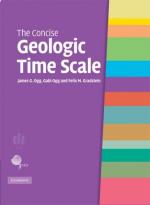|
This section contains 786 words (approx. 3 pages at 300 words per page) |

|
There are several different ways that Earth scientists consider time. Geologic time is generally thought of as the period of time that begins with the initial formative processes of Earth and ends with the onset of recorded human history. The human era begins with the end of geologic time and continues today. Archeologic time, which begins with early hominid evolution and also continues through today, overlaps with geologic time. Encompassing all other measures of time is cosmologic time, which begins with the formation of the Universe and will continue until it ends.
In the early days of the Enlightenment era, geologic and cosmologic time were viewed as one, because there was no perceived difference between the age of the earth and the Universe as a whole. James Hutton (1726–1795), a founding father of geology during this era, stated his view of geologic/cosmologic time thusly: "We find...
|
This section contains 786 words (approx. 3 pages at 300 words per page) |

|


